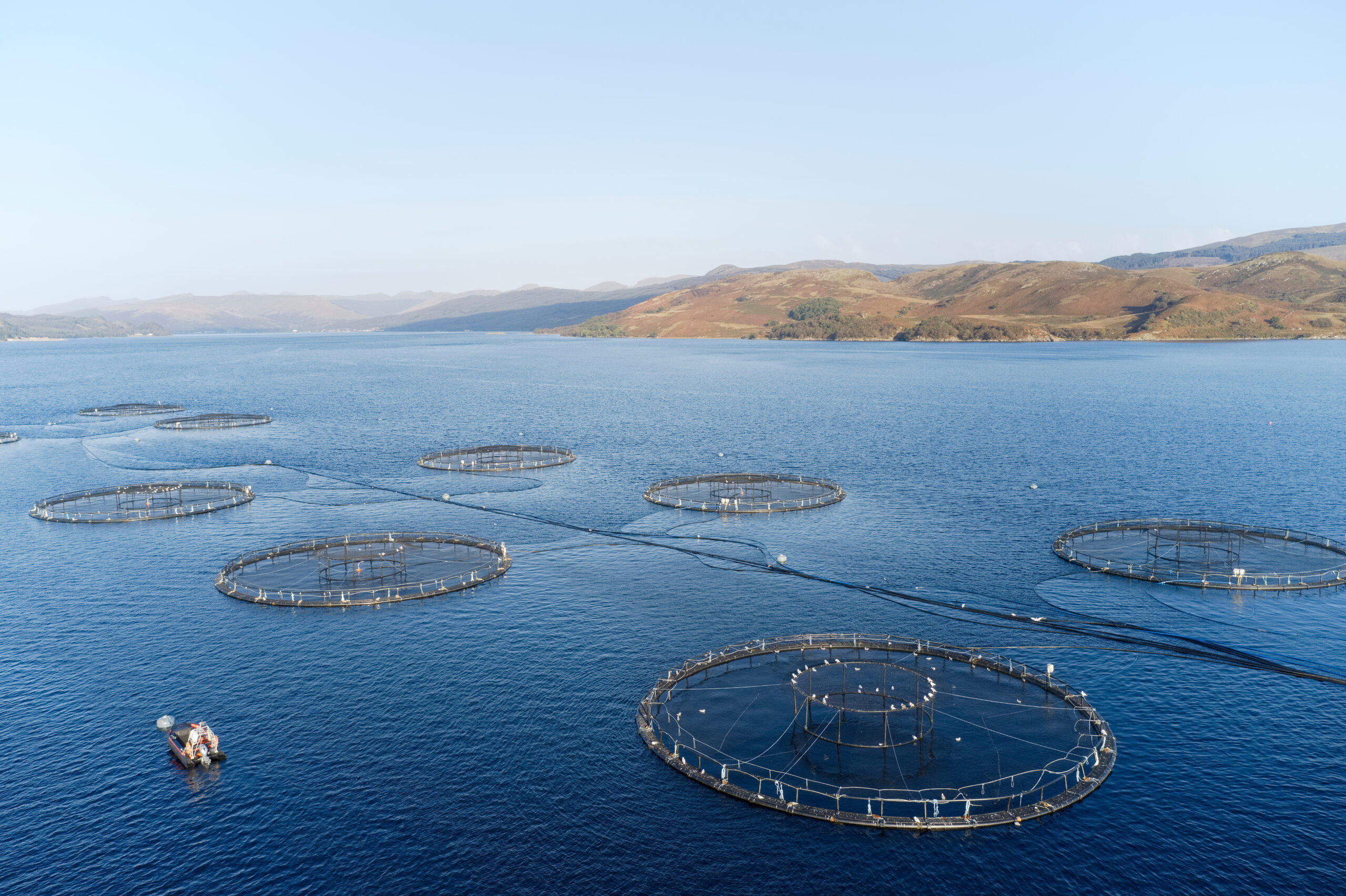SEPA to go ahead with wild salmon protection zones

The Scottish Government is to press forward with the roll-out of “Wild Salmon Protection Zones” which will restrict fish farming in areas seen as high risk for wild salmon.
The proposed regulatory framework has not, however, been welcomed by Scotland’s salmon industry.
The Scottish Environment Protection Agency (SEPA) has been consulting on its plans for a Sea Lice Framework, which will see salmon migration bottlenecks in coastal waters designated as protection zones. The aim is to reduce the reduce the risk to young migrating salmon posed by sea lice numbers in and around salmon farms.
In the designated areas, proposals for new or expanded fish farms will not be approved unless the operators can show that sufficient mitigating factors are in place to prevent the growth of sea lice populations.
SEPA said it has adopted a “proportionate, evidence-based regulatory approach” and added “The Framework will help to support the sustainable development of fish farming in Scotland by guiding development to the least sensitive locations, as well as providing an effective and efficient framework to assess risk and apply appropriate management measures, where necessary, in order to protect wild fish.”
Mairi Gougeon, Cabinet Secretary for Rural Affairs, Land Reform and Islands, said: “Salmon is one of Scotland’s most iconic species and I am grateful for SEPA’s support in developing this framework.
“Our Vision for Sustainable Aquaculture values the role of aquaculture in producing world-renowned healthy and quality seafood, whilst recognising that its delivery and development must be sustainable.
“The framework will support sustainable development of fish farming worth more than £1 billion to our economy, ensuring our communities continue to realise the benefits of aquaculture by guiding development to the least-sensitive locations and protecting the environment, whilst making the development process more efficient and effective.”
SEPA said that its framework had been developed on the basis of cutting-edge scientific models, and in collaboration with leading scientists in Scotland and Norway, other regulators, finfish producers, environmental NGOs, coastal community groups and wild fishery interests.
Industry body Salmon Scotland is sceptical regarding the basis of SEPA’s models. However.
Salmon Scotland Chief Executive Tavish Scott said: “We support regulation based on fact, evidence and sound science.
“The Scottish Government commissioned Professor Russel Griggs to conduct an independent regulatory assessment; his recommendations were all accepted by ministers and were for better, more streamlined regulation.
“Now the sector faces not that, but more regulation. Additionally for a new regulation, SEPA cannot explain how it will measure success.
“We support measures to address the decline in the population of wild salmon in Scottish waters. The Scottish Government has previously identified more than 40 pressures on wild salmon stocks, of which sea lice is just one. We are still waiting to see what government and its many agencies are going to do on the other identified pressures.”
He added that the Salmon Scotland board meets next week and will consider the SEPA plan in full at that meeting.
SEPA said the framework will be implemented in phases and will sit alongside the wider set of regulations introduced in 2019, which already controls all discharges from marine finfish farms to the water environment.
The framework for protection of wild salmon will be applied when determining applications for proposed new farms and for increases in the number of fish at existing farms on the West Coast and Western Isles from the beginning of February 2024. There are no identified salmon rivers in the Northern Isles.
An adaptive approach to the protection of sea trout populations will be implemented from March 2025 covering the West Coast, Western Isles and Northern Isles.

